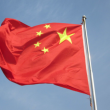President Joe Biden has blocked the proposed $14.9 billion deal for Nippon Steel of Japan to acquire Pittsburgh-based U.S. Steel, fulfilling his campaign promise to prioritize U.S. national interests and domestic steel production.
The rejection of the deal has stirred controversy as Nippon Steel and U.S. Steel criticized the decision, claiming it violated due process and suggesting legal action against the President’s move.
The big picture: Biden’s decision was made following the Committee on Foreign Investment in the United States (CFIUS) failing to reach a consensus on potential national security risks associated with the merger.
- The decision to block the deal could potentially strain U.S.-Japan relations, as Japan is a key ally in Asia and holds a significant amount of U.S. debt.
What they’re saying: Both Nippon Steel and U.S. Steel expressed disappointment and concern over the rejection, stating that the decision had negative implications for America’s interests and the treatment of a U.S. ally like Japan.
- “We need major U.S. companies representing the major share of US steelmaking capacity to keep leading the fight on behalf of America’s national interests,” Biden said in a statement.
- A statement from Steelworkers President David McCall praised Biden’s decision, citing it as a move to protect national security and the interests of American steelworkers.
- Nippon Steel countered the decision by asserting that they were best positioned to help American steel compete with Chinese dominance and invest in U.S. facilities, pledging to safeguard U.S. Steel in trade matters and committing not to import steel slabs that could compete with American blast furnaces.
Driving the news: Nippon Steel had announced its intention to purchase U.S. Steel in December 2023 for $14.9 billion, promising to retain the U.S. Steel name and headquarters in Pittsburgh while raising concerns about the potential impact on unionized workers and national security.
- The proposed acquisition came amidst a push for revitalizing American manufacturing and a series of protective U.S. tariffs that aimed to boost domestic steel production.











